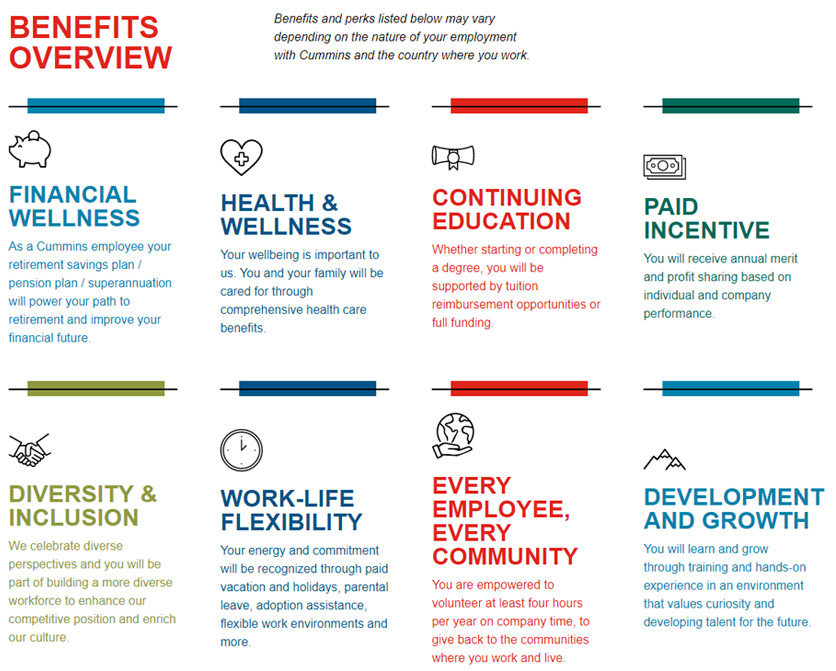·This applied science position conducts experiments via third party and in-house tools to determine structural performance of components and systems. The results from the experiments are used to determine the validity of the design to meet the customer requirements. Design recommendations are then provided as needed.
·Investigates product and system problems, understands causal mechanisms, recommends appropriate action, owns problem resolution and documents results with guidance from more experienced team members
·Main focus is on the execution and improvement of established processes primarily documented in detailed local and global work instructions (EPs) that are required in Engineering Standard Work (ESW) and/or Design Validation Plans (DVP&R). This is accomplished through standard, as well as development of specialized experimental tools and methods that are required to support the Design and Validation processes and enable high confidence decision making.
·Obtains input from Design, Thermal Sciences, Materials and Product Validation groups and delivers key structural performance measurements like motion, load, natural frequencies, stress, design margin, life, sound power to Design and Product Validation.
·Uses formal training like Statics, Dynamics, Machine Design, Mechanics of Materials, Failure Analysis, Engineering Materials and others along with test and measurement results to make Design decisions of structural performance of components and systems. Has ownership of problem resolution for moderately complex components, products, systems, subsystems or services with a greater degree of technical complexity and ambiguity over the entry level engineer and with greater accountability to the project team.
·Owns problem resolution for moderately complex components, products, systems, subsystems or services with a greater degree of technical complexity and ambiguity over the entry level engineer level and with greater accountability to the project team.
·Provides independent execution of established work processes and systems, while still developing technology or product knowledge; engages with the improvement of systems and processes.
·Involves minimal direct management of people, but could involve the coordination and direction of work amongst technicians and/or temporary student employees.
·Contributes effectively toward team goals, exhibits influence within a work group and continues to develop proficiency in the competency areas critical to success in the role.
技能
·应用疲劳和耐久性原理 - 通过数字建模和/或物理测量确定组件和系统的寿命;评估组件温度、固有频率、模态振型、位移、应变/应力、磨损和疲劳寿命,得出影响内部和外部客户设计决策的结论。
·应用噪声和声学原理 - 通过数字建模和/或物理测量确定组件和系统的声学行为;评估空气和结构传递噪声、声功率级、声音质量、柔体运动和固有频率,得出影响内部和外部客户设计决策的结论。
·应用动力学和振动原理 - 通过数字建模和/或物理测量确定组件和系统的运动;评估刚体和柔体运动、固有频率、模态振型、位移、速度、加速度、摩擦和磨损,得出影响内部和外部客户设计决策的结论。
·产品系统建模和分析 - 通过利用和解释预测组件或系统性能的数字工具和方法,影响产品设计决策,以最好地满足利益相关方的要求。
·产品功能测试系统设计 - 根据测试标准或实验室客户要求解释测试设备规格;选择和整合合适的设备、仪器和软件以控制边界条件并收集测量数据;根据要求和支持基础设施评估实验室设备的能力。
·基于功能的“X”产品测试 - 选择合适的设备和技术来操作产品,并在基于硬件或软件的测试环境中记录操作数据,这些测试环境通常是产品验证或验证计划的一部分;评估测量数据的质量和有效性;使用公认的标准分析测试结果,描述符合负责产品决策的工程师要求的产品性能。
·应用统计方法原理 - 使用描述性统计、概率分布、图形分析和统计推断(总体与样本、置信区间和假设检验)分析技术数据;使用方差分析、回归和实验设计来模拟响应和自变量之间的关系,以作出严谨、基于数据的决策。
·决策质量 - 及时作出高质量的决策,推动组织发展。
·追求结果 - 一贯地达成绩效,即使是在艰难的情况下也是如此。
·协作 - 建立合作伙伴关系并与他人协作,以达成共同目标。
·有效沟通 - 发展和实现多模式沟通,清晰了解不同受众的特定需求。
·自我发展 - 使用正式和非正式发展渠道,积极寻找新的方式发展和锻炼自己。
教育,资格,认证
·要求具备工程或其他相关技术类专业的大专、本科或同等学士学位。特定职位可能要求具备与本专业领域相关的研究生(硕士)学位。
该职位可能需要获得有关遵守出口管制或制裁法规的许可证。
经历
·要求具备之前在相关专业领域工作的入门级工程类同等工作经验。具备使用 MS Office 工具、Matlab、LabVIEW、nCode、Siemens Test.Lab 及 Windows 操作系统综合经验的应聘者优先。
·能吃苦耐劳。
